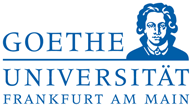Project erStMaL
Early Steps in Mathematics Learning
The erStMaL project is a long-term study that investigates the development of mathematical thinking in children from kindergarten until the second grade of elementary school by using mathematical situations of play and exploration.
In the erStMaL project, mathematical development is investigated from kindergarten age until the second grade of elementary school. The reciprocal relationships between different mathematical domains, which are used by children while they are occupied with mathematical problems, are of main interest. Until now, most studies mainly examined one mathematical domain to find out more about mathematical development. In erStMaL mathematical situations of play and exploration from different mathematical domains are offered to children in groups or pairs. The domains are: geometry and spatial thinking, measurement, numbers and operations, data and probability and pattern and algebraic thinking. Our research questions are: How do children handle these mathematical problems in interaction with others of the same or of different ages? Which means of participation are offered to the children in these situations and how do they react to these opportunities of participation? Which mathematical solutions of the problems do children develop?
Theoretically, the project is based, on the one hand, on an interactional view of mathematics learning as being highly socially constituted. On the other hand, the perspective of the theory of participation and the approaches of research in mathematical conceptions are used to analyze the video data in various qualitative methods.
Selected Publications
- Brandt, B., Vogel, R., & Krummheuer, G. (Hrsg.) (2011). Die Projekte erStMaL und MaKreKi. Mathematikdidaktische Forschung am “Center for Individual Development and Adaptive Education” (IDeA). Münster: Waxmann.
- Kortenkamp, U., Brandt, B., Benz, C., Krummheuer, G., Ladel, S., & Vogel, R. (2014). Early Mathematics Learning Selected Papers of the POEM 2012 Conference. New York, NY: Springer.
- Krummheuer, G. (2012). The “non-canonical” solution and the “improvisation” as conditions for early years mathematics learning processes: The concept of the “interactional niche in the development of mathematical thinking“ (NMT). Journal für Mathematik-Didaktik, 33, 317–338.


